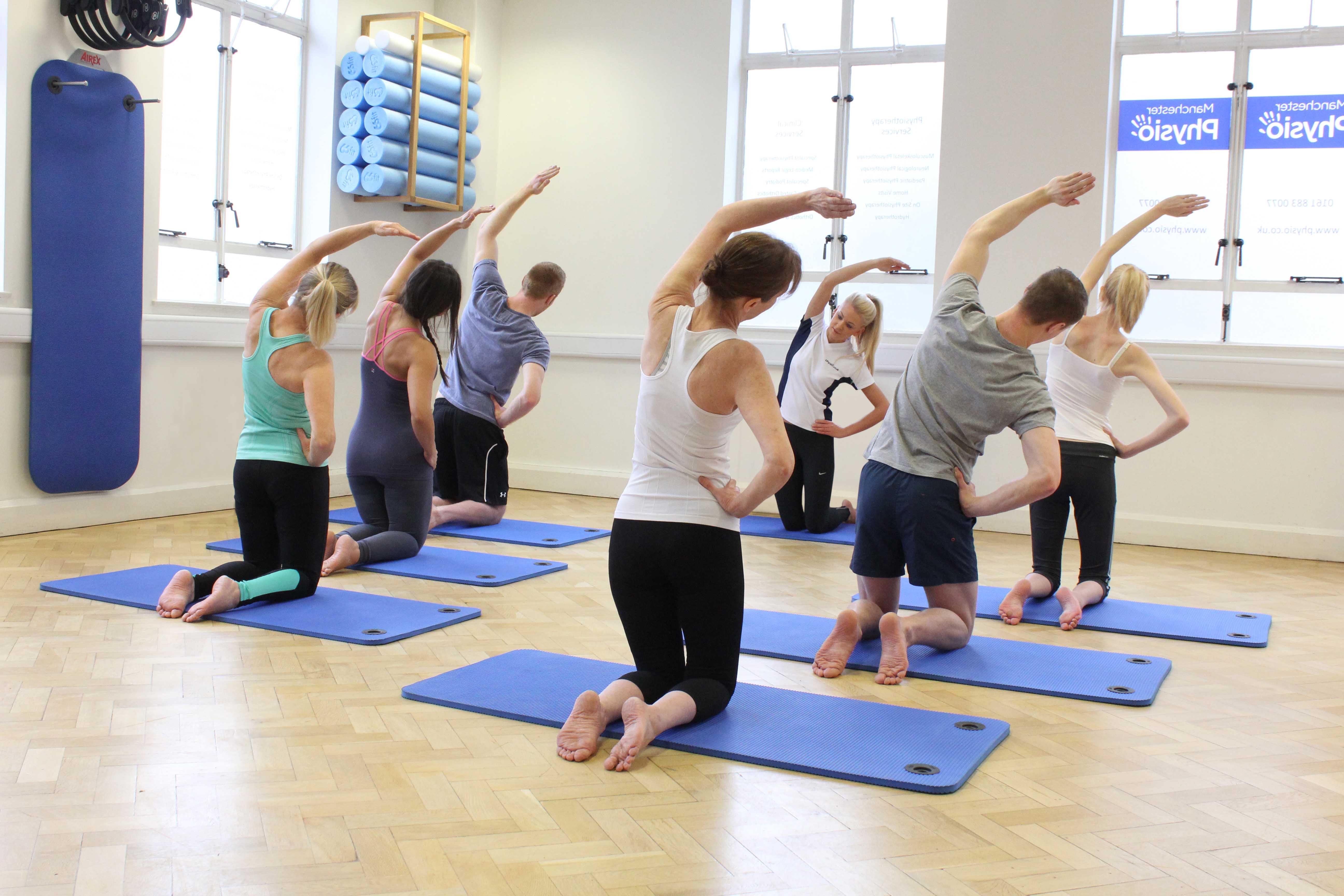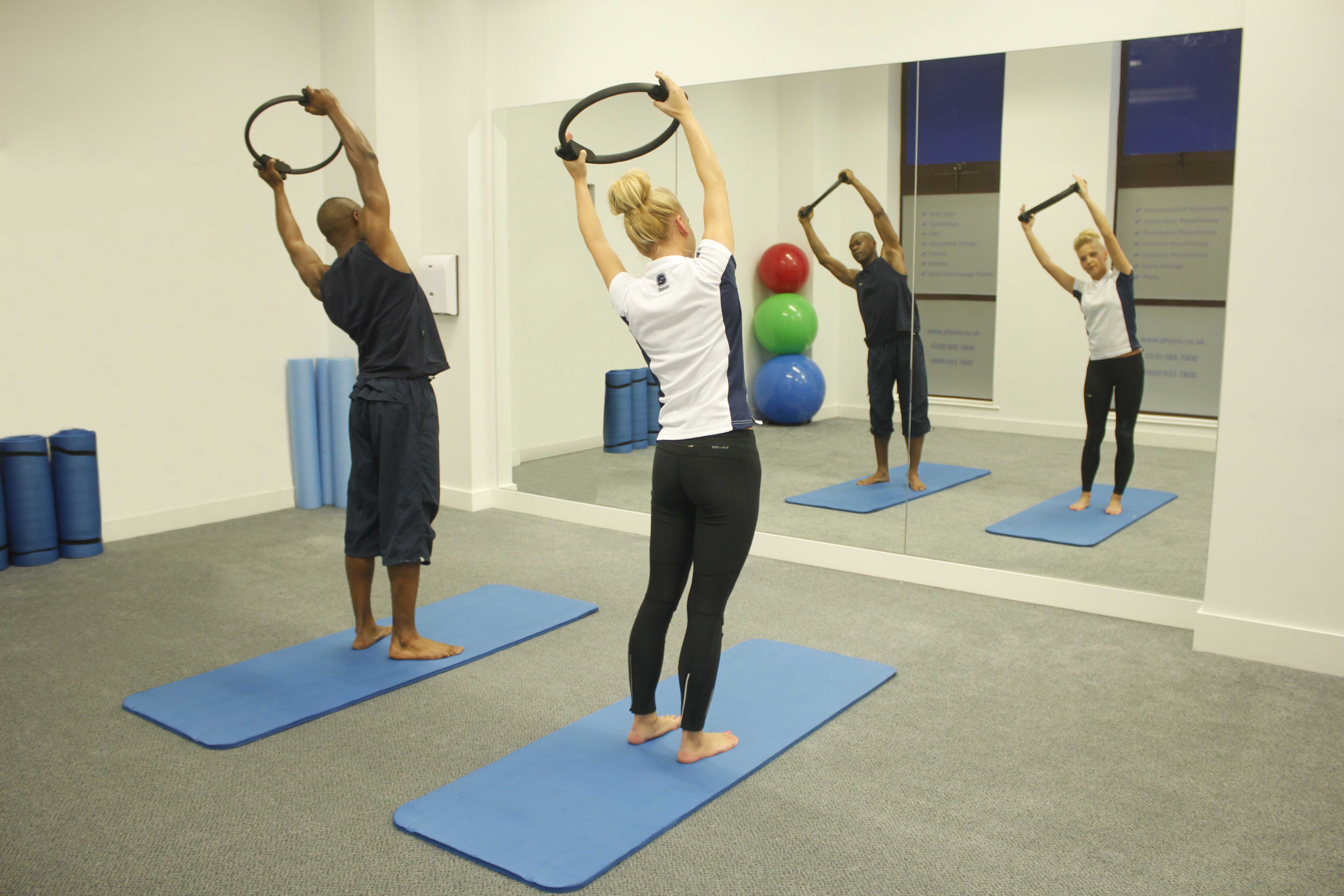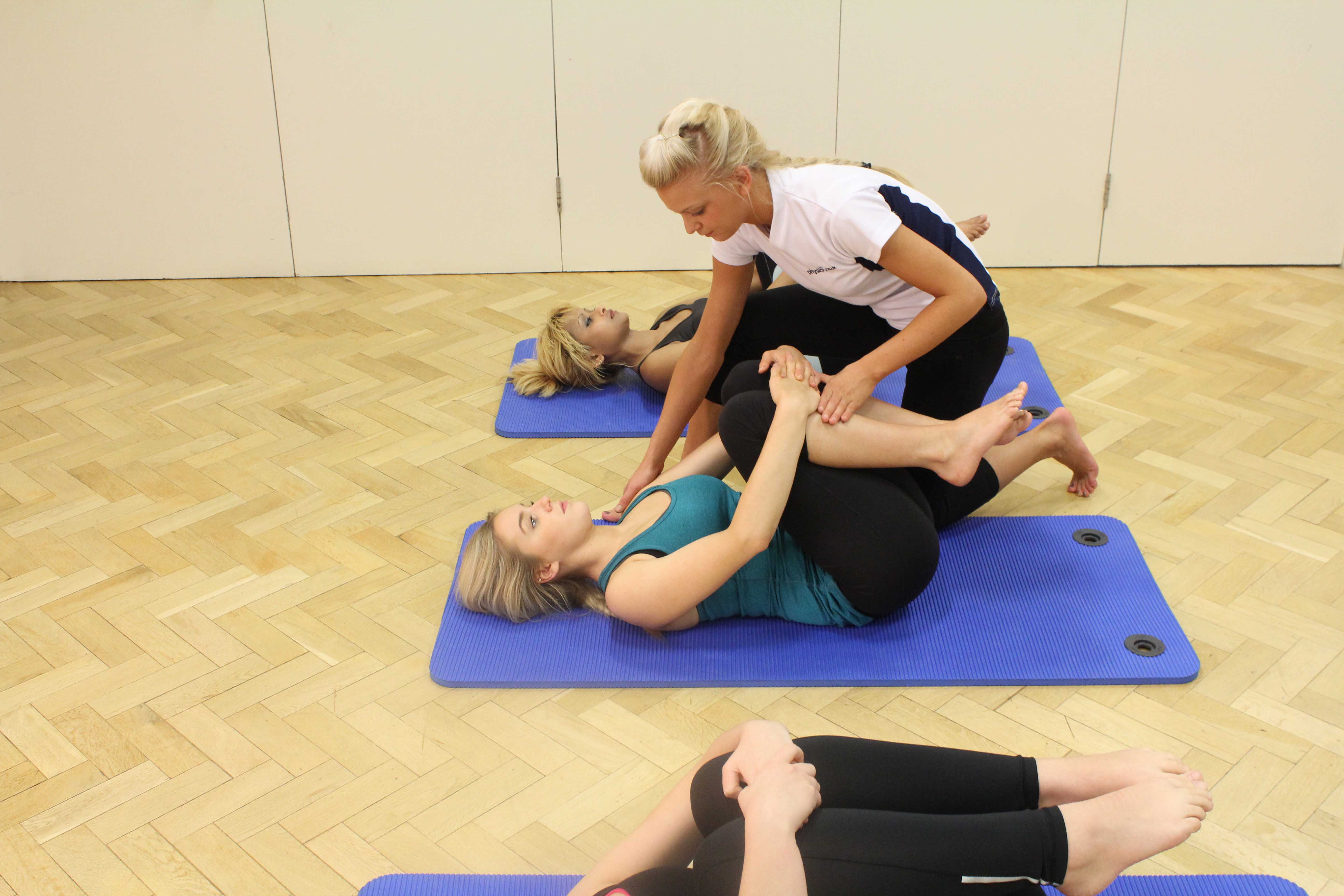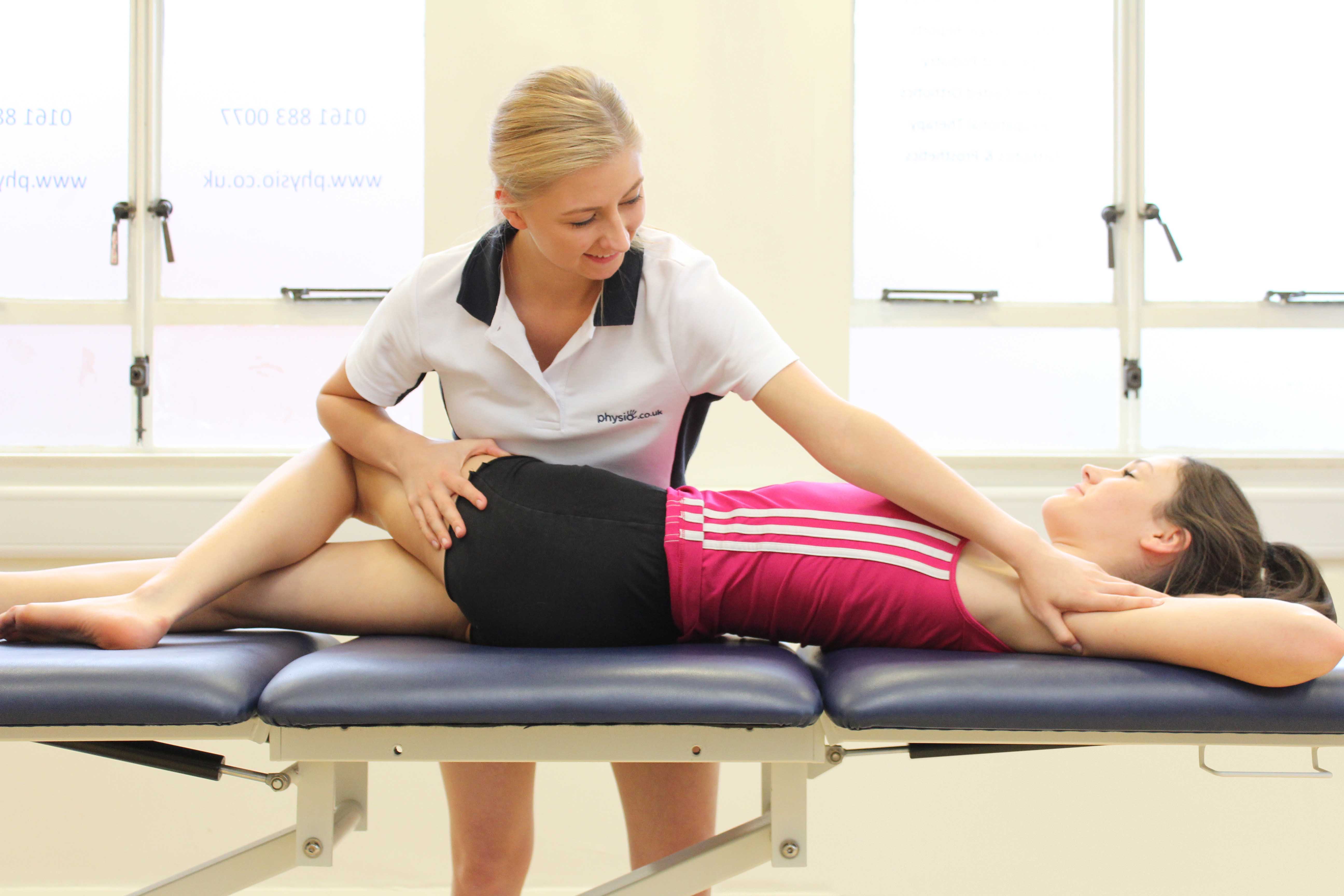Pilates helps to improve body awareness and relaxation while challenging the body to develop strength and endurance. By doing this people see an improvement in posture, reduction in pain, increase in strength and conditioning of the body and improved flexibility.
 Above: Physiotherapist led pilates class using foam rolls
Above: Physiotherapist led pilates class using foam rolls History of Pilates
It was developed by Joseph Pilates and became recognised as early as the 1920s and has grown from strength to strength ever since. Joseph was a boxer, circus performer and taught self-defence. However, it was when he worked within a hospital during the war that his skills become apparent. He working with the ill patients and found that if he helped them start a graded exercise regime they became better quicker. From this the idea of Pilates grew and has been used in the very fit or as a rehabilitation tool ever since. Pilates is practised all around the world and numerous research articles describe its benefits along with lots of high profile people, celebrities and sport figures giving praise to the concept.
 Above: One to One Pilates session with specialist physiotherapist
Above: One to One Pilates session with specialist physiotherapistPrinciples of Pilates:
Pilates exercises are based on ideas which are known as basic principles. Our Pilates trained physiotherapists will focus on:
- Breathing
- Control
- Precision
- Routine
- Concentration
- Centring
- Flow
Breathing
Breathing out while completing the hardest part of the exercise helps to create the greatest support for the spine thus allowing harder exercises to be done.
Concentration
Pilates requires you to stay focused on the body position during the various exercises to help maintain correct alignment. Pilates requires you to train the mind as well as the body.
 Above: One to One Pilates session with specialist physiotherapist
Above: One to One Pilates session with specialist physiotherapistControl
The Pilates exercises are done with the muscles working against gravity. Your Pilates physiotherapist will teach you to be in control of your body.
Centring
The centre is the focal point of Pilates. Your Pilates physiotherapist refer to the group of muscles in the center of the as the "powerhouse". All movement in Pilates should begin from the powerhouse.
Precision
The focus in Pilates is on doing one precise movement, rather than incorrect ones. The goal is for this precision to eventually become second nature, and carry over into everyday life.
 Above: Small class size, specialist Physiotherapist led pilates sessions
Above: Small class size, specialist Physiotherapist led pilates sessionsFlow
The Pilates exercises are intended to flow into each other in order to build strength and stamina once precision has been achieved.
Routine
Repetition leads to greater benefits and increased skill.
Once you have mastered the basic concepts within a beginner’s environment the rest will come naturally. Your Pilates physiotherapist will help to teach you the correct techniques and your body will quickly learn and then develop the core strength required.
To join our classes at Physio.co.uk and start Pilates training call 0330 088 7800.

 0330 088 7800
0330 088 7800


































